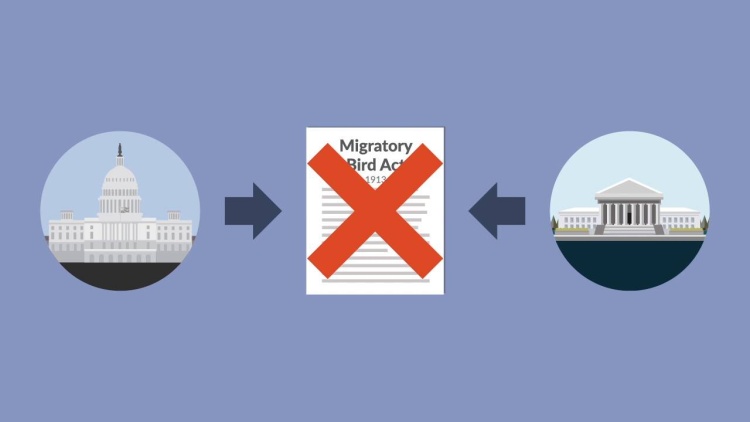Missouri v. Holland
United States Supreme Court
252 U.S. 416 (1920)
- Written by Megan Petersen, JD
Facts
On December 8, 1916, the president of the United States entered into a treaty with Great Britain that provided greater protection for migratory birds. Both the United States and Great Britain agreed that their legislatures would pass laws enforcing the treaty. In response, the United States passed the Migratory Bird Treaty Act of July 3, 1918, which prohibited the killing, capturing, or selling of any of the migratory birds protected by the treaty, except as permitted by additional regulations passed by the secretary of agriculture. Missouri (plaintiff) brought a bill in equity to prevent Holland (defendant), a United States game warden, from enforcing the act. Missouri alleged primarily that the statute was an unconstitutional interference with the rights reserved to the states by the Tenth Amendment to the United States Constitution. The district court dismissed the bill on the ground that the statute was constitutional, and Missouri appealed.
Rule of Law
Issue
Holding and Reasoning (Holmes, J.)
What to do next…
Here's why 904,000 law students have relied on our case briefs:
- Written by law professors and practitioners, not other law students. 47,100 briefs, keyed to 995 casebooks. Top-notch customer support.
- The right amount of information, includes the facts, issues, rule of law, holding and reasoning, and any concurrences and dissents.
- Access in your classes, works on your mobile and tablet. Massive library of related video lessons and high quality multiple-choice questions.
- Easy to use, uniform format for every case brief. Written in plain English, not in legalese. Our briefs summarize and simplify; they don’t just repeat the court’s language.





